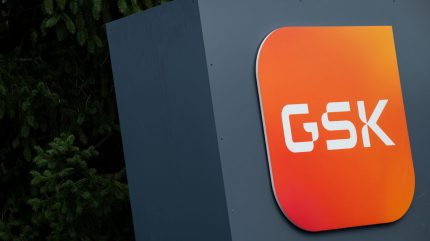
GSK said it remains confident in its ability to absorb the financial impact of potential US pharmaceutical tariffs as it posted a 4% rise in Q1 2025 sales to £7.52bn ($10.05bn), driven by growth in speciality medicines despite weaker vaccine revenues.
The UK-based pharma company told investors on 30 April that it expects to navigate possible cost pressures from tariffs through increased operational efficiency, supply chain resilience, and further expansion of its US manufacturing footprint.

Discover B2B Marketing That Performs
Combine business intelligence and editorial excellence to reach engaged professionals across 36 leading media platforms.
CEO Emma Walmsley said GSK is starting “from a position of strength” and is considering accelerating the use of AI to support productivity and mitigate cost base increases: “Technology is advancing all the time to enable us to do more. Now, there is ongoing work in terms of continually improving the productivity of R&D.”
Walmsley added that GSK is exploring alternative sourcing for ingredients and materials and has already taken steps to boost US-based manufacturing: “We’re also very pleased to break ground on our new state-of-the-art manufacturing facility in Marietta, Pennsylvania, this quarter. This is squarely targeted on increasing manufacturing capacity for new pipeline products in the US and means that GSK will have six manufacturing sites in America.”
GSK joins peers, including Eli Lilly, MSD, and Johnson & Johnson (J&J), in strengthening domestic production amid uncertainty around US trade policy. GSK was also among several pharmaceutical manufacturers that recently urged the European Union (EU) to permit drug price increases, warning that the region risks further falling behind the US without stronger investment incentives.
While the company reaffirmed its full-year revenue growth guidance of 3% to 5%, its Q1 results showed mixed performance across business segments. Sales of speciality medicines climbed 17% to £2.93bn, led by continued growth in its HIV portfolio, asthma treatment Nucala (mepolizumab), lupus drug Benlysta (belimumab), and a more than 50% rise in oncology sales to £415m. New approvals in the quarter included the meningitis vaccine Penmenvy and the first-in-class antibiotic Blujepa (gepotidacin).

US Tariffs are shifting - will you react or anticipate?
Don’t let policy changes catch you off guard. Stay proactive with real-time data and expert analysis.
By GlobalDataHowever, vaccine revenues declined 6% to £2.1bn, reflecting softer demand for shingles vaccine Shingrix, as well as respiratory syncytial virus (RSV) vaccine Arexvy. The company said it expects a recovery in RSV sales following updated US guidance that expands eligibility to adults aged 50 to 59 at an increased risk.
“We welcome the expanded recommendation, which opens up access to a cohort of around 13 million people in the US,” said Luke Miels, GSK’s chief commercial officer.
“Although in the current vaccine environment, we don’t expect a significant upside this year, and this market will take time to build, but we remain confident in the long-term importance of this vaccine.”
Walmsley said GSK is preparing for several key launches in the months ahead, including the relaunch of the blood cancer therapy Blenrep (belantamab mafodotin), a new indication for Nucala (mepolizumab) in chronic obstructive pulmonary disorder (COPD), and its new asthma biologic depemokimab.
Navigate the shifting tariff landscape with real-time data and market-leading analysis.
Request a free demo for GlobalData’s Strategic Intelligence here.




